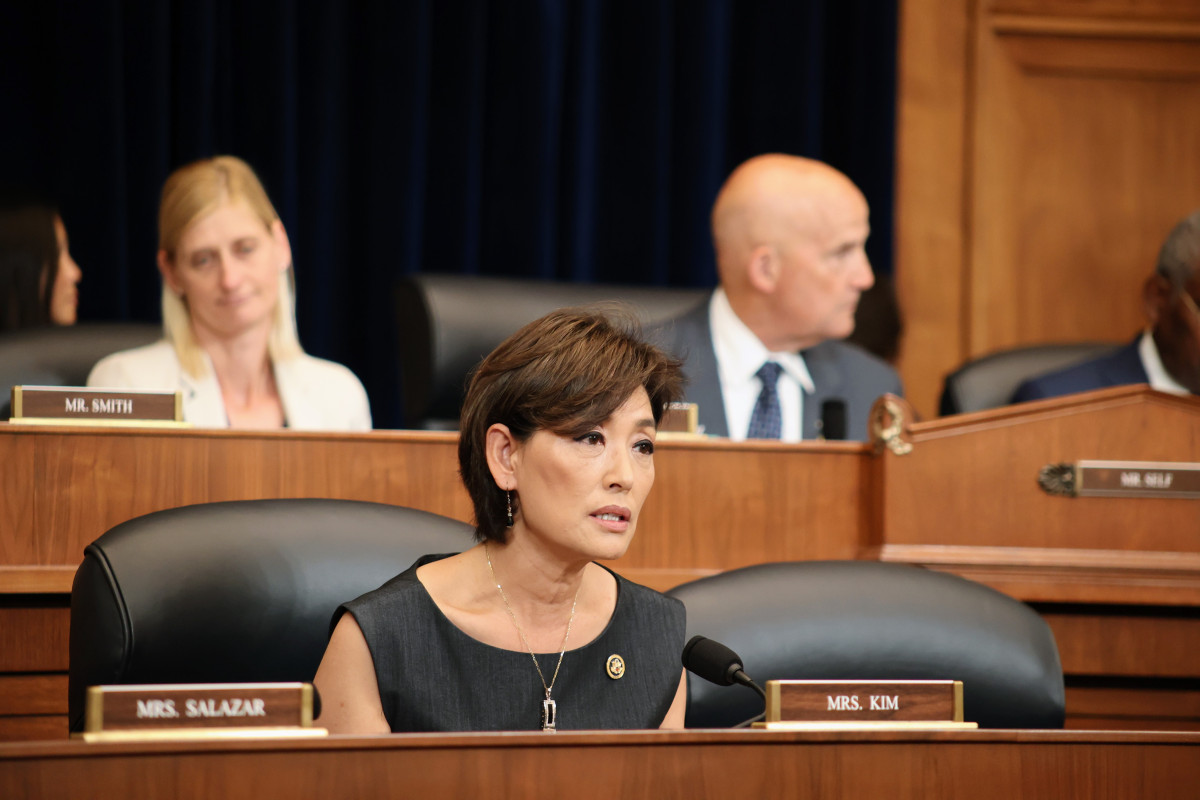Two Republican lawmakers have introduced legislation they say will help protect U.S. intellectual property (IP) from the Chinese communist regime and other adversaries.
The Protecting American Innovation and Development (PAID) Act is meant to “expose foreign adversaries illegally accessing American IP and to protect U.S. businesses’ competitiveness and our national security,” said Rep. Young Kim (R-Calif.), chairwoman of the House Foreign Affairs Subcommittee on the Indo–Pacific.
“We cannot allow authoritarian regimes like the Chinese Communist Party (CCP), North Korea, Russia, and Iran to get away with IP theft, steal U.S. trade secrets, and undermine our national security,” she said in a July 2 statement introducing the bill.
The PAID Act targets foreign adversary entities that use U.S. intellectual property related to critical or emerging technologies—such as hypersonic systems, artificial intelligence, and space technology—without a license. It requires the Secretary of Commerce to identify and report violations of these entities to Congress.
For years, the CCP has been accused of stealing IP and trade secrets from companies and institutions. The Office of the U.S. Trade Representative, in a report published in 2018, found that “Chinese theft of American IP currently costs between $225 billion and $600 billion annually.”
“Chinese Communist Party-controlled companies like Huawei illegally siphon off our technology and leave American tech companies high and dry,” said Rep. John Moolenaar (R-Mich), chairman of the House Select Committee on the Chinese Communist Party. “I’m proud to co-sponsor Rep. Kim’s bill that will push back against this theft and support the ingenuity of American tech companies.”
If it becomes law, the legislation will allow the End-User Review Committee to determine whether a foreign adversary entity uses American IP without a license. Those found in violation will be added to the Federal Register by the Commerce Secretary.
The measure will also allow Americans who own trade secrets stolen by foreign entities or have evidence of such actions to submit a petition requesting the End-User Review Committee investigate and determine whether a foreign adversary entity is violating the law.
Earlier this year, U.S. Ambassador to China Nicholas Burns said U.S. companies expressed concerns about IP theft when operating in China.
In a related measure, Rep. John Curtis (R-Utah) introduced in March the Combatting China’s Pilfering of Intellectual Property (CCP IP) Act to pressure the CCP to end the IP thefts from U.S. companies.
Mr. Curtis proposed imposing financial sanctions on companies, government agencies, and individuals, as well as a visa ban on CCP members and government officials until the CCP takes steps to stop IP theft.
‘The CCP Seeks to Overtake the United States Via IP Theft’
The 2020 China Task Force, made up of 15 bipartisan House members, issued a report that found that “The CCP seeks to overtake the U.S. as the global leader in technology through IP theft, industrial espionage, and other hostile acts, which are conducted through official state actions as well as unofficial/covert state actions and policies that incentivize malign activity by non-state actors in [China].
“The CCP seeks to damage or destroy the value of the IP of U.S. businesses, thereby inflicting economic harm to the U.S., while simultaneously enabling [Chinese] firms to profit from the theft of that IP. Moreover, the CCP seeks to disrupt the U.S. economy by exploiting the IP systems of the U.S. to give [Chinese] firms an edge over U.S. competitors, such as by raising costs or creating obstacles for U.S. businesses,” the report adds.
In October last year, the Five Eyes intelligence alliance—Australia, Canada, New Zealand, the UK, and the United States— warned that IP theft in technology and other trade secrets poses significant threats to the West and is “unprecedented in human history.”
The FBI chief said that the CCP’s spying operations could be seen in many fields, including agriculture, aviation, biotech, health care, robotics, and academic research. Furthermore, Beijing’s tech theft is not limited to big businesses, like Fortune 100 companies, but extends to smaller startup firms.
“We probably have somewhere in the order of 2,000 active investigations that are just related to the Chinese government’s effort to steal information,” Mr. Wray said at the time.




